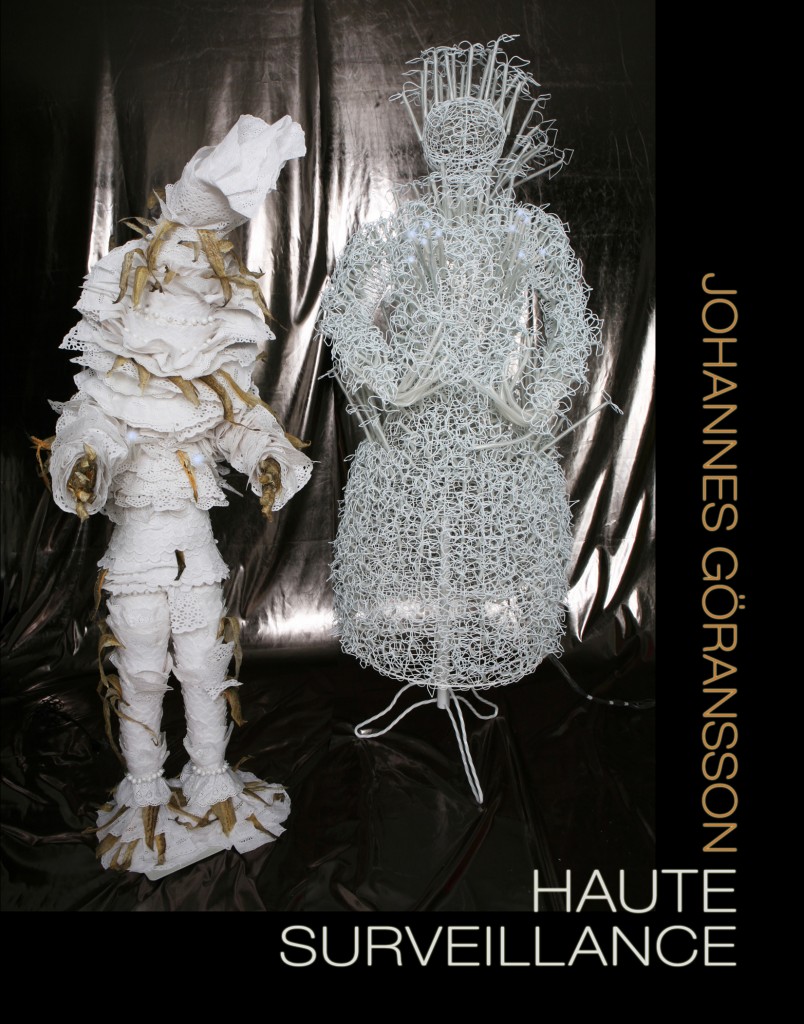a micro review by Ella Longpre
Tarpaulin Sky Press (2013) $14
Johannes Göransson’s Haute Surveillance is a textual representation of the horrific and luminous spectacle of a post-modern condition defined by unavoidable participation in (and often a voluntary surrender to) a global war economy. The multi-genre work (a novel in dialogue with prose poetry and punctuated by epistolary and dramatic interludes) embodies a term coined in its own narrative, “atrocity kitsch,” inhabiting bathtubs, war prisons, and a Shining Mansion on the Hill (a dream-like conflation of the White House and the hotel from Stanley Kubrick’s The Shining). What makes Haute Surveillance disturbing while ultimately familiar is that such conflations don’t necessarily come across as products of the author’s, or even the narrator’s, twisted imagination, but as products of culture. Doesn’t the office of the Presidency occupy a space in our cultural imagination somewhere between an ideologically and physically oppressive brute force and an institution of ineffectual celebrity perpetuated by its own mythos? This is an American and post-modern novel because American post-modernity is the only existing site where a female soldier, stationed at a war prison, who gleefully photographs horrific, torturous acts and brutalized bodies, can occupy the same imaginary and publicized space as a Hollywood “starlet.” And Haute characterizes her as such. Unspeakable acts are glamourized in Haute because such acts are so unspeakable in our culture that the cloaks we use to cover them have become both specialized and bedazzled; our ability to look away has developed its own technology. We are constantly threatened with and by surveillance and yet are unwilling to turn our gaze onto and against the looming, big bad spectator. Haute Surveillance, like us, is much more willing to costume horror in a thick, nihilistic sheen.


